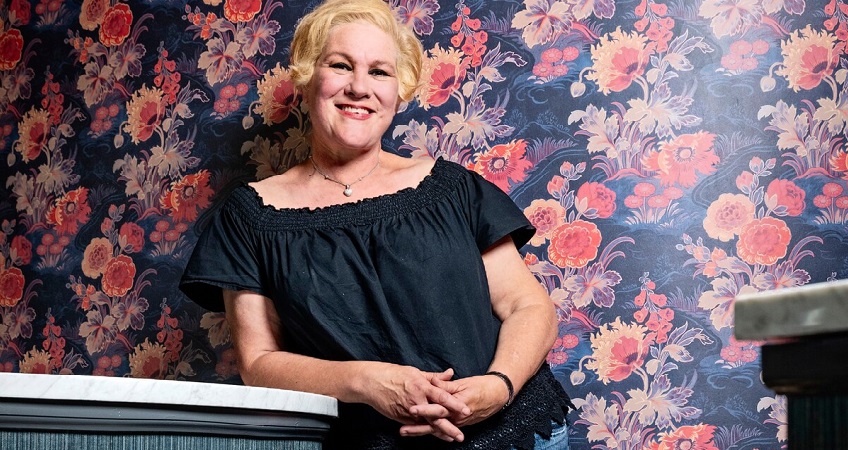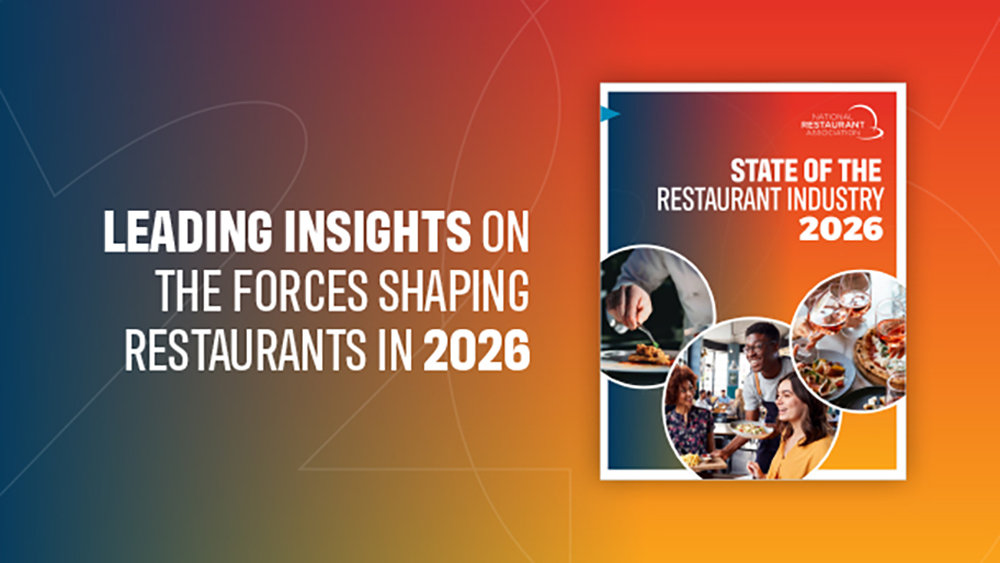Articles
February 29, 2024
Charley Prime Foods: Staking a claim for growth … and survival
High operating costs and anti-business legislation could impact plans for future expansion.

Greenbaum has taken time during the winter months to modify the menu, and is experimenting with off-premises delivery.
Charley Prime Foods, the multi-concept Goodbar Management Group’s newest casual-dining restaurant in the Washington, D.C. area, has all the hallmarks to become a successful chain.
With its location in a lakefront lifestyle mall called Rio, and a steak-centric and cocktail-laden menu, the restaurant started catching on with neighborhood foodies, especially during the warmer months. Owner Jackie Greenbaum and her partner, Gordon Charles Banks, opened Charley Prime, an offshoot of their Bar Charley gastro pub in downtown D.C., last year in suburban Gaithersburg, Md., but only after long supply-chain delays and cost overruns.
Greenbaum says she’s hopeful Charley Prime will attract even more guests this year as the restaurant continues to generate more word-of-mouth recommendations.
She’s taken time, especially during the winter months, to modify the menu to appeal to all types of customers year-round and is experimenting with off-premises delivery.
“Our patio dining is so different compared with being indoors,” she says. “That’s what drove a lot of our menu redesign. We’ve broadened it where we thought it made sense, de-emphasized the steaks a little bit, added some seafood, and a more casual element.”
“More people expect larger portions for the prices they’re paying, though most of our entrees average between $19 and $26,” she says. “And, because our alcohol distribution system is county-controlled, it’s more expensive for us to buy and sell it. We try to be price conscious; our cocktails range between $8 and $16. Our guests have a strong expectation of value, and they also tend to spend less on alcohol.”
Greenbaum, who designed Charley Prime with scalability in mind, has had to scale back her expansion plans while navigating operating challenges in the post-pandemic world.
“D.C.’s elimination of the tipped wage, where tips no longer make up the lion's share of the service staff’s wages, has resulted in a seismic change in the cost to restaurants,” she says. “And now the government is trying to outlaw service charges, too. We’re all trying to figure out what to do. The financial pressure on us is intense.”
She also says her customers have told her in no uncertain terms that if she raises her prices or includes a surcharge on their checks, they’ll rethink how often they dine out.
“We get comments from customers about how expensive it is to eat out, and that they can’t afford to dine out anymore,” she says. “I get emails from people telling me they used to love us, but they don’t want to come back if they have to pay a surcharge. My costs, especially labor, have gone through the roof. I feel like a big reckoning is coming. We can’t pass these increases, dollar for dollar, onto our customers, but we also have to survive.”
If Greenbaum does decide to open another restaurant, she says it likely would be another Charley Prime.
“It’s really stylish, modern, and chef-driven,” she says. “We’ve been well received, and people tell us they’re happy there’s something new and interesting to try. If we continue to hit the right mark, we could have a long lifespan, but all I can think about right now is staying sustainable in this current climate. That’s what I’m focused on.”
Read about the challenges and opportunities operators face in the coming year. Download the 2024 State of the Restaurant Industry report today.
With its location in a lakefront lifestyle mall called Rio, and a steak-centric and cocktail-laden menu, the restaurant started catching on with neighborhood foodies, especially during the warmer months. Owner Jackie Greenbaum and her partner, Gordon Charles Banks, opened Charley Prime, an offshoot of their Bar Charley gastro pub in downtown D.C., last year in suburban Gaithersburg, Md., but only after long supply-chain delays and cost overruns.
Greenbaum says she’s hopeful Charley Prime will attract even more guests this year as the restaurant continues to generate more word-of-mouth recommendations.
She’s taken time, especially during the winter months, to modify the menu to appeal to all types of customers year-round and is experimenting with off-premises delivery.
“Our patio dining is so different compared with being indoors,” she says. “That’s what drove a lot of our menu redesign. We’ve broadened it where we thought it made sense, de-emphasized the steaks a little bit, added some seafood, and a more casual element.”
Challenged by pricing pushback
One of the restaurant’s biggest challenges is the pushback on pricing that Greenbaum says is part of operating in the suburbs.“More people expect larger portions for the prices they’re paying, though most of our entrees average between $19 and $26,” she says. “And, because our alcohol distribution system is county-controlled, it’s more expensive for us to buy and sell it. We try to be price conscious; our cocktails range between $8 and $16. Our guests have a strong expectation of value, and they also tend to spend less on alcohol.”
Greenbaum, who designed Charley Prime with scalability in mind, has had to scale back her expansion plans while navigating operating challenges in the post-pandemic world.
Increased costs, legislation hurting operators
Increased labor and food costs, customer demands, and anti-business legislation, including D.C.’s elimination of the tipped wage and an end to alcohol-to-go sales in Maryland’s Montgomery County, have left Greenbaum scrambling.“D.C.’s elimination of the tipped wage, where tips no longer make up the lion's share of the service staff’s wages, has resulted in a seismic change in the cost to restaurants,” she says. “And now the government is trying to outlaw service charges, too. We’re all trying to figure out what to do. The financial pressure on us is intense.”
She also says her customers have told her in no uncertain terms that if she raises her prices or includes a surcharge on their checks, they’ll rethink how often they dine out.
“We get comments from customers about how expensive it is to eat out, and that they can’t afford to dine out anymore,” she says. “I get emails from people telling me they used to love us, but they don’t want to come back if they have to pay a surcharge. My costs, especially labor, have gone through the roof. I feel like a big reckoning is coming. We can’t pass these increases, dollar for dollar, onto our customers, but we also have to survive.”
If Greenbaum does decide to open another restaurant, she says it likely would be another Charley Prime.
“It’s really stylish, modern, and chef-driven,” she says. “We’ve been well received, and people tell us they’re happy there’s something new and interesting to try. If we continue to hit the right mark, we could have a long lifespan, but all I can think about right now is staying sustainable in this current climate. That’s what I’m focused on.”
Read about the challenges and opportunities operators face in the coming year. Download the 2024 State of the Restaurant Industry report today.
Supported by
-
SageSage Intacct accounting software delivers exceptional customer experiences while driving revenue and growth. Built in the cloud for the cloud, Sage Intacct digitizes business processes, improving operational efficiency and profitability. Restaurant operators of all sizes depend on Sage Intact for exceptional visibility into their financial performance.Learn more
Get the report
Get the report
Sign up for our Newsletter
The latest news from the National Restaurant Association, published every other Thursday
By clicking Submit I agree to receive email communications from the National Restaurant Association and agree to our Privacy Policy(Opens in a new window).

